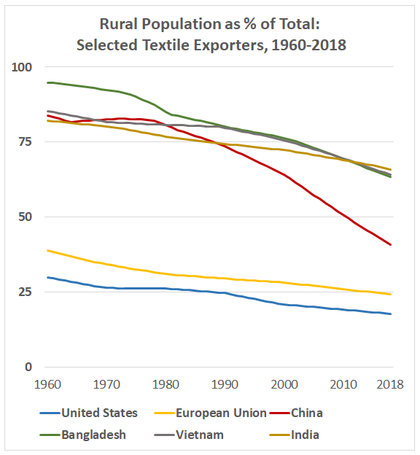Family Separations for Textile Workers: Spiegel
Workplace schedules establish cultural patterns for nations, and governments often must step in to end grueling routines. For example, in the United States, Congress mandated an eight-hour workday in 1916 and the five-day workweek emerged a decade later. A pattern has emerged in the world’s most populous developing nations with low labor costs: Parents leave rural communities for work in industrial centers, seeing their children only a few days a year. Spiegel International reports on a 25-year-old mother who works in Bangladesh’s second largest textile production factory in Chittagong that makes clothing for Walmart. Her schedule: six days per week, nine hours per day. Such schedules require family sacrifices. One survey suggests that a third of all Bangladeshi workers live apart from immediate families. The country has more than 4,600 registered textile factories that account for 20 percent of the country’s gross domestic product. The article describes Bangladesh as a success story, with per capita GDP increasing from $227 to $1698 since 1980 and poverty reduced by half. Factories are improving safety conditions, too, but consumer prices are rising. Parents hope for a better life for their children. – YaleGlobal
Family Separations for Textile Workers: Spiegel
Cost of fashion: Rural parents work in Bangladesh's cities, sewing clothes for Western consumers and often seeing their children only a few days each year
Thursday, December 19, 2019
Spiegel International
© SPIEGEL ONLINE 2019 All Rights Reserved Reproduction only allowed with permission
